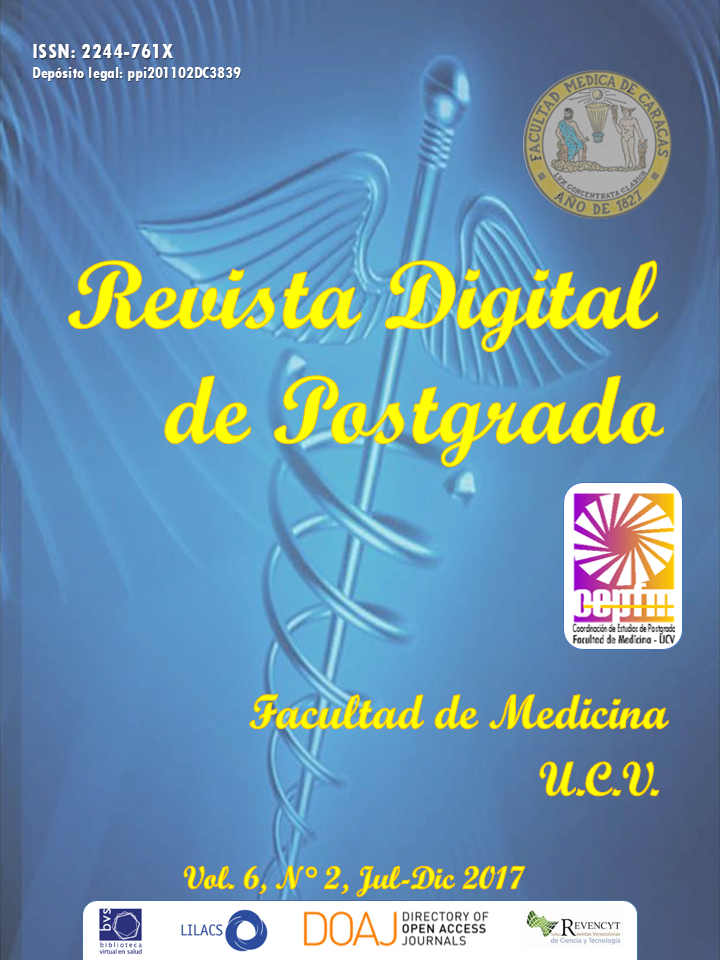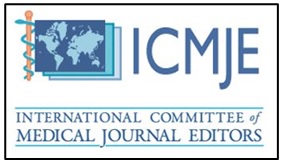Nutritional Diabetes Education: an emerging strategy in Venezuela
Keywords:
Diabetes mellitus, diabetes education, nutritional therapy, self-management, VenezuelaAbstract
Therapeutic Education in Diabetes is a fundamental part for the adequate management of diabetes, and diabetes nutritional education is also fundamental, this allows the empowerment of patients with nutritional tools that allow them in a simple and pleasant way to make changes in lifestyle to control blood glucose levels and achieve metabolic goals. In Venezuela, Diabetes Education is still not recognized in the university or health institutions as a professional career, but several groups work together to promote educational tools and competencies, especially those related to food and nutrition. This paper presents a perspective of the most relevant findings that establish the nutritional and educational principles of the strategy of nutrition education in diabetes in Venezuela, so that it can be applied every day more in the country through educators in diabetes, Nutritionists-Dietitians and the rest of health professional.Downloads
References
Organización Mundial de la Salud. Informe Mundial sobre la
Diabetes. (Internet); 2016. [Citado 22 abril 2017]. Disponible en:
www.who.int/diabetes/global-report
Federación Internacional de Diabetes. Atlas de la diabetes de la FID
ma Edición (Internet); Noviembre 2015. [Citado 22 abril 2017].
Disponible en:
http://www.idf.org/sites/default/files/SP_6E_Atlas_Full.pdf
Assal JP, Mühlhauser I, Pernet A, Gfeller R, Jörgens V, Berger M.
Patient education as the basis for diabetes care in clinical practice
and research. Diabetologia. 1985; 28(8):602-13.
Rustad C, Smith C. Nutrition knowledge and associated behavior
changes in a holistic, short-term nutrition education intervention with
low-income women. J Nutr Educ Behav. 2013; 45(6):490-98.
Beck JK, Traficano SE. Diabetes educator mentorship program:
mentors requested. Diabetes Educ. 2015; 41(1): 38-42.
Contreras F, Hernández C, Hernández P, Díaz L. Diseño e
implementación de un Diplomado en Educación Terapéutica en
Diabetes (ETD) dirigido a profesionales de la salud en Venezuela.
Vitae. 2015; 64:1-12.
Coppola A, Sasso L, Bagnasco A, Giustina A, Gazzaruso C. The role
of patient education in the prevention and management of type 2
diabetes: An overview. Endocrine. 2015; 53:18–27.
Chapman-Novakofski K, Karduck J. Improvement in knowledge,
social cognitive theory variables, and movement through stages of
change after a community-based diabetes education program. J Am
Diet Assoc. 2005; 105:1613–1616.
Wang H, Song Z, Ba Y, Zhu L, Wen Y. Nutritional and eating
education improves knowledge and practice of patients with type 2
diabetes concerning dietary intake and blood glucose control in an
outlying city of China. Public Health Nutr. 2014; 17: 2351-8.
Hernandez P, Contreras F, Velasco M. Nutritional Diabetes
Education: More than Just Nutrients. Curre Res Diabetes & Obes J.
; 4(2):555631.
Evert A, Boucher JL, Cypress M, Dunbar SA, Franz MJ, et al.
Nutrition therapy recommendations for the management of adults
with diabetes. Diabetes Care. 2014; 37: 120-43.
Delamater AM. Improving patient adherence. Clinical Diabetes.
; 24(2): 71–7.
Li Y, Xu M, Fan R, Ma X, Gu J, Cai X, et al. The Effects of Intensive
Nutrition Education on Late Middle-Aged Adults with Type 2
Diabetes. Int J Environ Res Public Health. 2016; 13(9): E897.
Barabino B, Malavia M, Assal J. The creative elaboration of a reallife
experience and its transformation in a work of art. Journal of
Medicine and the Person. 2007; 5.
Anderson LM, Scrimshaw SC, Fullilove MT, Fielding JE, Normand J,
Task Force on Community Preventive Services. Culturally competent
healthcare systems. A systematic review. Am J Prev Med. 2003;24(3
Suppl):68-79.
Mosely K, Malik-Aslam A, Speight J. Overcoming barriers to diabetes
care: perceived communication issues of healthcare professionals
attending a pilot Diabetes UK training programme. Diabetes Res Clin
Pract. 2010; 87(2): e11-4.
Downloads
How to Cite
Issue
Section
License
Usted es libre de:
- Compartir — copiar y redistribuir el material en cualquier medio o formato
- Adaptar — remezclar, transformar y construir a partir del material
- para cualquier propósito, incluso comercialmente.
Bajo los siguientes términos:
-
Atribución — Usted debe dar crédito de manera adecuada, brindar un enlace a la licencia, e indicar si se han realizado cambios. Puede hacerlo en cualquier forma razonable, pero no de forma tal que sugiera que usted o su uso tienen el apoyo de la licenciante.
- No hay restricciones adicionales — No puede aplicar términos legales ni medidas tecnológicas que restrinjan legalmente a otras a hacer cualquier uso permitido por la licencia.











